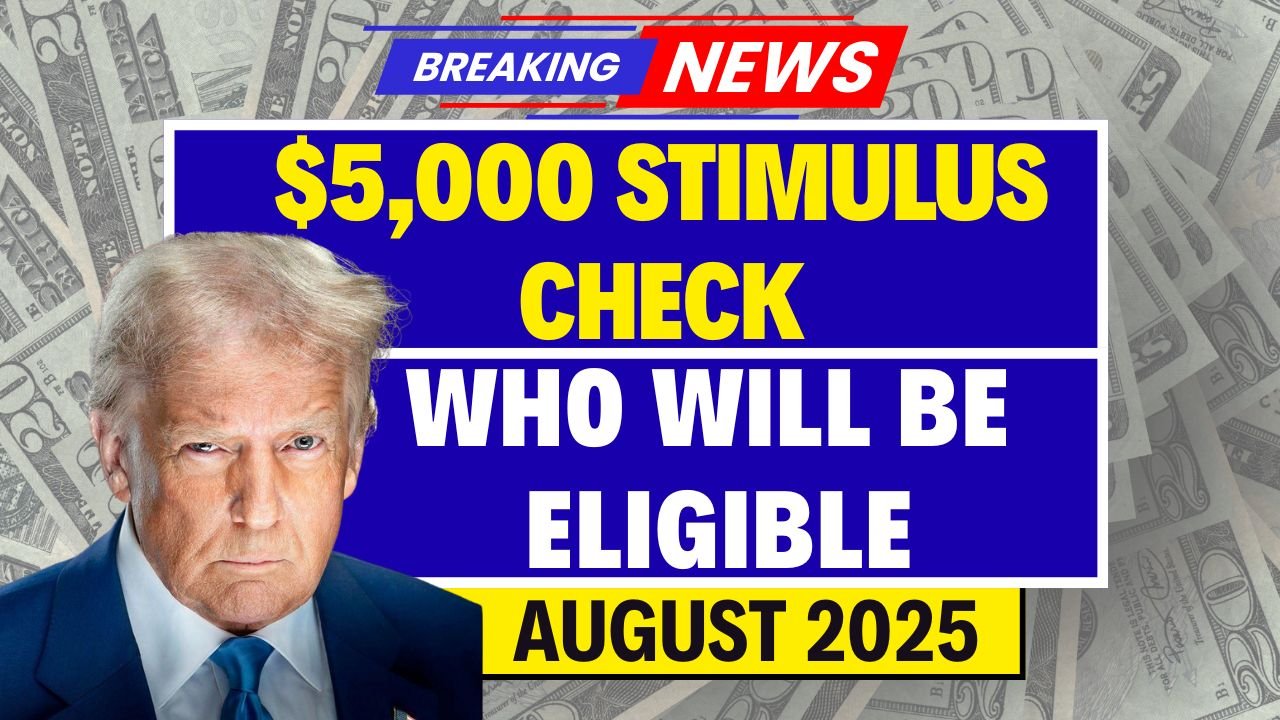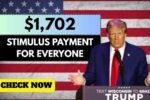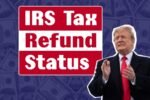In America, conversations about financial relief are never far from the headlines, and once again, stimulus payments are the focus of national debate. This time, it’s the proposed $5,000 Stimulus Check, which many analysts believe could arrive as soon as August 2025. Since the start of the pandemic, federal aid in the form of direct payments has become an essential lifeline for millions of households. Yet, every time a new round of stimulus discussions surfaces, one big question dominates: Will everyone be eligible to receive this payment—or will it only benefit a select group of Americans?
This article takes a deep dive into the details of the $5,000 Stimulus Check, including what it is, why it’s being proposed, who is likely to qualify, how it will be distributed, and what you need to do to prepare.
What Is It and Why Now?
Stimulus checks are direct financial payments issued by the government to ease financial hardship during economic crises. The primary purpose is to stimulate the economy by giving households more purchasing power. During the height of the 2020 pandemic, Americans received multiple rounds of direct checks ranging from $600 to $1,400 per person.
Now, in 2025, inflation, rising living costs, and ongoing economic instability have created renewed pressure for relief. Families across the U.S. continue to struggle with soaring rent, healthcare bills, childcare expenses, and student loan repayments. Against this backdrop, the idea of a $5,000 Stimulus Check has gained momentum as a potential solution to ease the burden on middle- and lower-income households.
While the payment has not been officially signed into law, conversations in Washington suggest that if approved, it would target groups most in need of relief—such as low-income families, seniors, disabled individuals, and single parents.
Will the $5,000 Stimulus Check Arrive in August 2025?
Perhaps the most pressing question people have is when the $5,000 Stimulus Check might be issued. Although the government has not released a formal schedule, multiple media outlets and policy experts anticipate that payments could begin as early as the second week of August 2025.
If history is any guide, the rollout would follow a phased distribution system managed by the IRS:
- Direct Deposit (Bank Transfer): Those who already have bank details on file with the IRS will be first in line, receiving payments directly into their accounts.
- Paper Checks: Individuals without bank accounts may receive physical checks by mail, though this process typically takes longer.
- Prepaid Debit Cards: In some cases, the IRS may opt to distribute funds via prepaid debit cards to make access easier for those without traditional banking.
Who Will Be Eligible for the $5,000 Stimulus Check?
Eligibility has always been a central issue with federal relief programs. Based on previous stimulus efforts, it’s highly unlikely that every American will automatically qualify for the $5,000 Stimulus Check. Instead, eligibility will probably be tied to income thresholds and specific criteria, ensuring the funds go to those who need them most.
Potential requirements may include:
- Individuals with an annual income of $75,000 or less (single filers).
- Married couples earning $150,000 or less combined.
- Households receiving Social Security, SSI, SSDI, or VA benefits.
- Unemployed individuals or those who lost jobs recently.
- Families who qualify for Low-Income Tax Credits.
On the flip side, higher-income earners, non-filers who haven’t updated their tax information, and those outside IRS program databases may not be eligible.
How to Confirm Your Eligibility
If you have filed taxes in 2023 or 2024, and your income falls within the above-mentioned brackets, you likely won’t need to take additional action. The IRS will use your most recent return to confirm eligibility and process payments.
However, there are exceptions:
- Non-Filers: If you haven’t filed taxes in recent years, you’ll need to update your information using the IRS Non-Filer Tool on their official website.
- Outdated Information: If your bank account details, mailing address, or dependent information has changed, updating them with the IRS will ensure you don’t miss out.
Why the $5,000 Stimulus Check Matters
For households living paycheck to paycheck, the $5,000 Stimulus Check could make a transformative difference. Unlike smaller stimulus payments of the past, this larger amount could provide breathing room for families juggling multiple expenses.
Consider how $5,000 could be used:
- Housing Relief: Covering rent or mortgage payments to prevent eviction or foreclosure.
- Healthcare Expenses: Paying for prescriptions, medical bills, or insurance premiums.
- Education Costs: Covering tuition fees, school supplies, or college expenses for children.
- Debt Management: Helping families pay down high-interest credit card debt or loans.
- Emergency Savings: Allowing households to build a cushion against unexpected financial shocks.
For vulnerable groups—like seniors on fixed incomes, disabled individuals facing steep medical costs, or single parents balancing multiple responsibilities—this relief could provide not just financial support but also peace of mind.
Beware of Scams and Fraud
Unfortunately, with every major government relief program comes a surge in scams. Fraudsters exploit public anticipation and desperation, tricking people into sharing personal information or paying bogus “processing fees.”
Here are a few red flags to watch out for:
- Phone Calls or Emails Claiming IRS Contact: The IRS does not call, text, or email asking for banking information.
- Upfront Payment Requests: You will never need to “pay a fee” to receive your stimulus check.
- Fake Websites: Always rely on the official government site—irs.gov—for accurate and updated information.
Staying vigilant is just as important as staying informed.
Will the $5,000 Stimulus Check Be Taxable?
A frequent question surrounding relief payments is whether they count as taxable income. Based on past precedents, the $5,000 Stimulus Check is expected to be non-taxable, meaning you won’t need to report it as income when filing your return. However, until the final legislation is passed, this cannot be guaranteed. Always check for updates directly from the IRS.
Conclusion
The proposed $5,000 Stimulus Check could represent one of the most significant financial relief packages in recent years. While not everyone will qualify, for eligible households it has the potential to cover critical expenses, reduce financial stress, and restore some stability in uncertain times.
Though official confirmation from the government is still pending, early projections point toward August 2025 as the likely distribution window. If you believe you may qualify, the best steps you can take now are to file your taxes promptly, update your information with the IRS if necessary, and remain alert for official announcements.
In times of economic hardship, such direct relief can provide more than just money—it can provide hope.
FAQs
Q1. What is the $5,000 Stimulus Check for August 2025?
A. It is a proposed government relief payment designed to support eligible citizens struggling with inflation, unemployment, and high living costs.
Q2. Is the $5,000 Stimulus Check officially confirmed?
A. Not yet. While discussions are underway, it has not been signed into law. Final details will be announced by the federal government.
Q3. Who will qualify for the $5,000 Stimulus Check?
A. Likely recipients include individuals earning under $75,000, married couples earning under $150,000, Social Security recipients, and other low-income households.
Q4. Do I need to apply for the stimulus payment?
A. If you’ve filed recent taxes or are part of Social Security programs, payments will likely be automatic. Non-filers may need to update information on the IRS portal.
Q5. When will the payments be made?
A. Analysts suggest distribution could begin in the second week of August 2025, starting with direct deposits.
Some Important Link
| Download News APP | Click Here |
| WhatsApp Group | Click Here |
| Home Page | Click Here |





